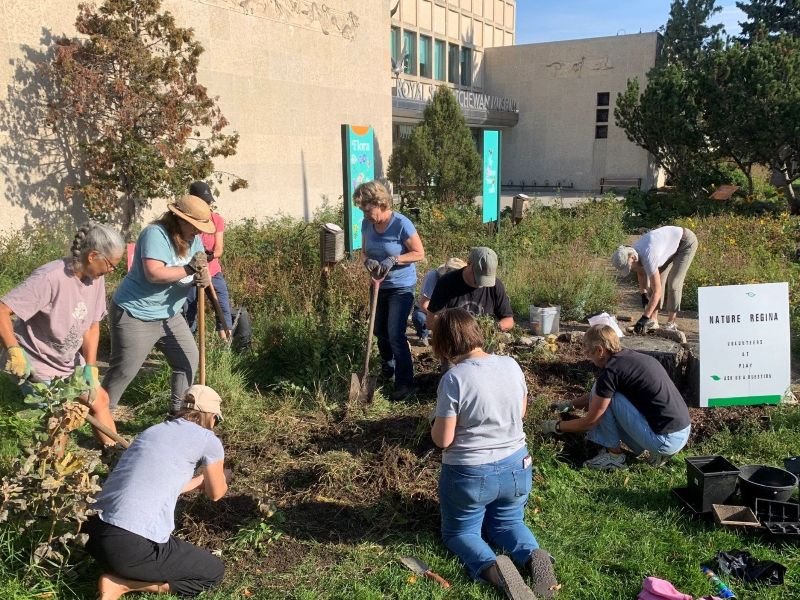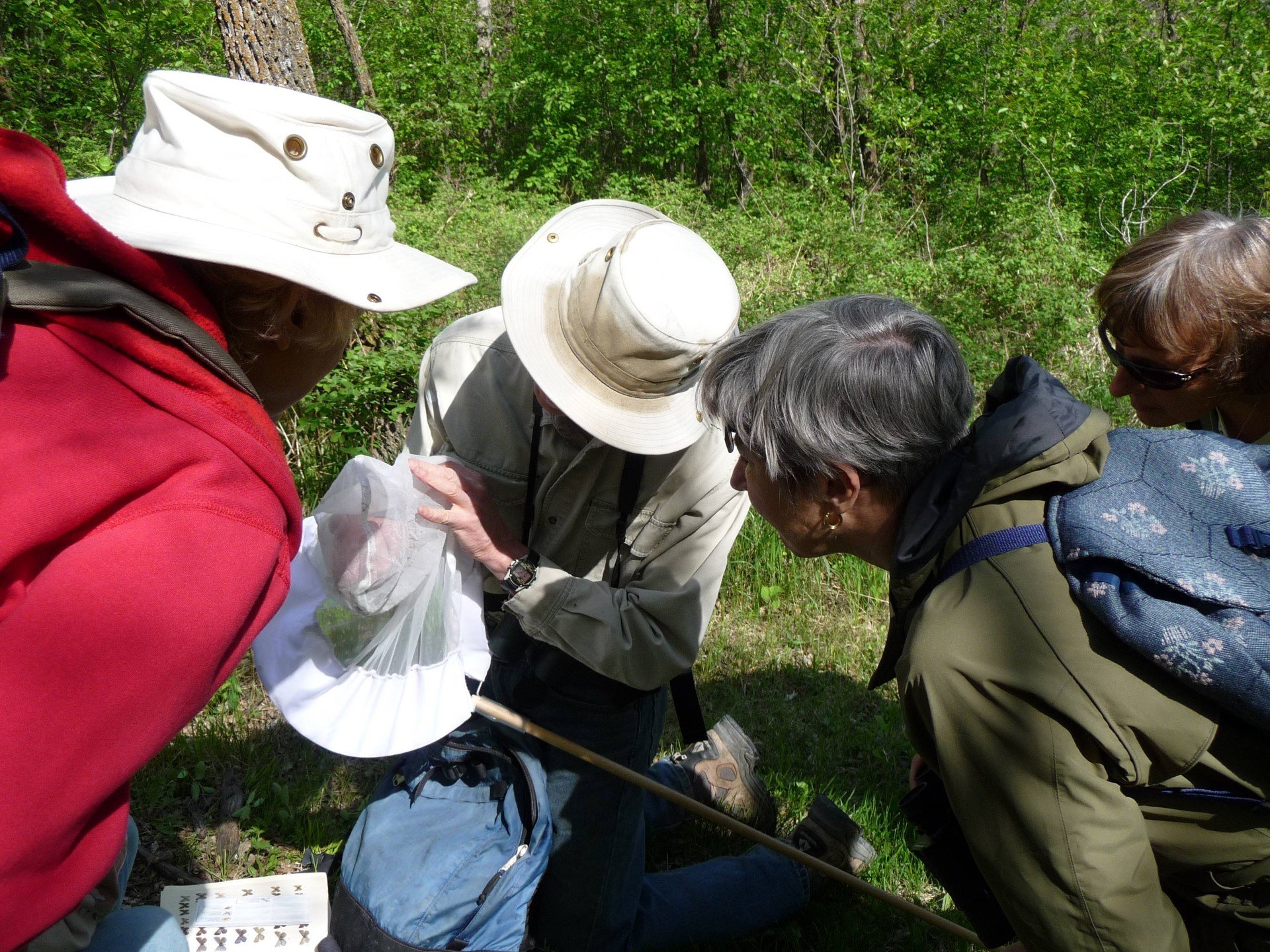Interview with Nature Regina for World Wildlife Day
March 3rd is World Wildlife Day! We interviewed Jim Elliot of Nature Regina to find out more about the activity the oldest Nature group in Regina is up to!
What led you to be involved in Nature Regina?
In the sense of history, I got involved with environmental and nature stuff fairly early on in my life. When I went to University to study biology and when I got my first job in Indian Head, so the natural thing was to join the natural history group and when I moved to Regina, I thought I might as well keep going and joined Nature Regina.
How has Nature Regina evolved since it was created in 1933?
You are in luck in a sense as I’ve been involved with the 90th Anniversary committee and we discussed a lot of the history. Initially, it was very much an ability to have lectures and meetings and listen to people who have expertise in the natural world. They would go out and do field trips similar to what we do now. It's grown tremendously since then. 80 years ago we bought a couple of quarter sections of land in the Qu’Appelle Valley, and we’ve kept that space more or less natural to the native nature. We’ve had long knowledge of that part of the country. From then we have become much more active in the field. We started doing Christmas Bird counts close to 70 years ago, and that’s getting more into the citizen sciences This year is our 30th Anniversary of the Native Plant garden in front of the Saskatchewan Natural History Museum which we have been maintaining over that period. We’ve been getting dirty as gardeners in actually cultivating and encouraging people to plant nature in their yards. It’s been the expansion of enjoying and informing people about nature in their backyard or in the city or outside the city.
Get Outside Fieldtrip
Can you discuss some of Nature Regina’s programs and initiatives?
We still do our monthly general meetings where we have someone come in and talk about specific topics like bumblebees, turtles or birds or those sorts of things. We do our field trips, which have principally been for birdwatching, but we also do plant trips as well. We’ve also got some expertise in different things like insects and butterflies. The substantial growth of our programs has been our Get Outside programs principally for children, whether that’s preschool or 8 to 14-year-olds. We also have a seniors group for those who want to take in nature but need accessible paths. The other program that is similar to the Christmas Bird Count is our Bird Safety Initiative, which is for our glass building downtown and trying to figure out ways to encourage them to cover their surfaces with spots and dots, but also documenting birds that we find in the migration. Part of that has also been the education of people who caretake the buildings. If they see birds at the base of a window they will put them in a secure spot to document the birds or save them. The most recent involvement was in naming the bird of Regina. One of the things that came out of that was over 20,000 people participated in it. That has given some footing to encourage the city to be a little more bird-friendly. We do a lot of speaker programs for an organization that wants someone to speak on a topic or a guided tour of a place like Wascana.
What do you find most important that Nature Regina is doing for the community?
I think it’s having the community become aware of the nature around them. Especially in the winter, we tend to not go outside as much but we attempt to get them to get outside whether that’s an organized way or through self-guided tours, which can be found on the nature regina website. During COVID, we also began recording our meetings, and we have continued to do so. The recordings of the speakers are also on the website.
Insect Fieldtrip
What has been the most inspiring moment you’ve seen in the community with Nature Regina?
I think the reinvigoration of the city with the Get Outside program which came from covid, where we couldn’t gather inside. The program allowed for people to get outside and learn about nature in Regina. Especially with kids not going to school and being on zoom all day, this program was to get them outside. From the very beginning of it we have had full classes all of the time. Even after covid, the numbers are very strong. It’s good to see the next generation of people to appreciate nature and learning. We’ve heard from parents that now they know how to go out in nature with their kids now, and see the interesting things the kids point out.
What part of the impact Nature Regina is making makes you most proud?
The Native Plant garden, even though it’s been there for 30 years, is the interest and the growth in having native plants in your yards and gardens. In the last 2-3 years we have had a native plant sale where people will take the seeds from the garden and grow the plants, then we sell them to people who want native plants in their garden. In many cases, its standing room only for people who want their own flowers to start their own patch. The Native Plant Garden will also be recognized on Wascana’s master plan now, rather than just the buildings and paths, they recognize the natural spaces too. They are also looking at placing native plants and grasses in areas that are usually tilled up in the spring to take care of weeds.
What do you want Regina to know about your organization?
The fact that we have a fair amount of expertise and a whole host of programs we put on. We have people that can help plant a native garden or identify birds or bees and what not. We can help them in programming for schools and classrooms. We have a fair amount of knowledge in the natural part of the city, if asked we are definitely willing to pass on that knowledge. We’ve had people doing this for decades and can tell people what’s available and how to enjoy nature in their cities.
What is the biggest barrier Nature Groups in Regina? How can Regina’s community improve on this?
I think the one that’s probably the toughest is the tendency of our city to want to have things manicured or ‘messy’. We are constantly told to have our lawns mowed, trees trimmed or leaves racked up in the fall, when that can be detrimental to nature and can make it worse. Just being able to have plants, birds and insects around, and that their not the pests that there made out to be. It’s fine to be a little messy in the sense for insects or birds because that’s where their food is. We want to have wildlife in our cities and need to be less manicured. I think the change is coming, when I think of native plants, you plant them once and you never have to plant them again. Many are going to perennial planting and covering, and they will withstand the droughts better, so you don’t have to water your yard all the time. It’s cheaper and better for the wildlife. The activity we’ve seen in the past few years has definitely helped in breaking through that barrier.
What is the future of Nature Regina?
In what we’ve been able to accomplish over the last 90 years, I'm hoping that we are still going to be able to expand the influence and expertise over the next few decades. Many of the 5 and 6-year-olds getting out in nature and planting native plants will be the decision-makers of the future with a lot more interest in water conservation, energy conservation, and nature in general.





